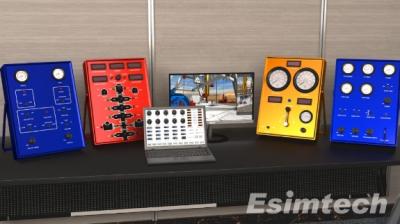Categories
Tags
-
#Waste Oil to Base Oil Plant
#Well Control Simulators
#HFO Visbreaking
#Transformer Oil BDV Tester
#VR Emergency Training Simulator
#SF6 Gas Purification Machine
#Laser Cleaning
#Automatic Laser Welder
#Benchtop Pneumatic Dot Peen Markers
#Oil Well Work
#Portable Well Control Simulators
#well logging
#Petroleum Engineering
#virtual reality emergency training simulator
#Well Control Simulator
#Waste Oil to Base Oil Plants
#Portable Simulator
#Web Guide Systems
#Floating Rig
Archives
Portable Drilling Well Control Simulators: A Key to Sustainable
-
The oil and gas industry is constantly evolving, demanding a skilled and adaptable workforce. To ensure operational safety and efficiency, effective training programs are crucial. In this context, portable drilling well control simulators have emerged as a game-changer, offering a sustainable and scalable solution for training personnel worldwide.
The Advantages of Portable Simulators:
Accessibility: Unlike traditional, fixed simulators, portable units can be easily transported to various locations, making training accessible to remote workforces and reducing travel costs.
Flexibility: These simulators can be adapted to different training needs and customized to specific drilling environments, ensuring relevance and effectiveness.
Cost-effectiveness: Portable simulators offer a cost-effective alternative to building and maintaining dedicated training facilities, making them ideal for companies of all sizes.
Scalability: They can be easily scaled up or down to accommodate varying training demands, ensuring flexibility and efficiency.
Environmental Impact: By reducing the need for travel and minimizing the carbon footprint, portable simulators contribute to a more sustainable training approach.
Key Features of Modern Portable Simulators:
Realistic Simulations: Advanced technology provides highly realistic simulations, replicating real-world drilling environments and challenges.
Interactive Training: Trainees can actively participate in the simulation, making decisions and responding to various scenarios.
Data-Driven Insights: Simulators can track trainee performance, providing valuable data for analysis and improvement.
Remote Training Capabilities: Some simulators offer remote training capabilities, allowing instructors to monitor and guide trainees from a distance.
Applications of Portable Simulators:
Initial Training: New hires can gain foundational knowledge and skills in a safe and controlled environment.
Refresher Training: Experienced personnel can maintain and enhance their skills through regular refresher courses.
Emergency Response Training: Trainees can practice emergency procedures and develop critical thinking skills in high-pressure situations.
Remote Training for Remote Locations: Simulators can be deployed to remote locations, providing training to personnel in challenging environments.
Conclusion:
Portable drilling well control simulators are revolutionizing training in the oil and gas industry. By offering accessibility, flexibility, cost-effectiveness, and scalability, these innovative tools empower companies to build a highly skilled and competent workforce while minimizing their environmental impact. As technology continues to advance, we can expect even more sophisticated and impactful portable simulators to emerge, further enhancing safety and efficiency in the industry.
